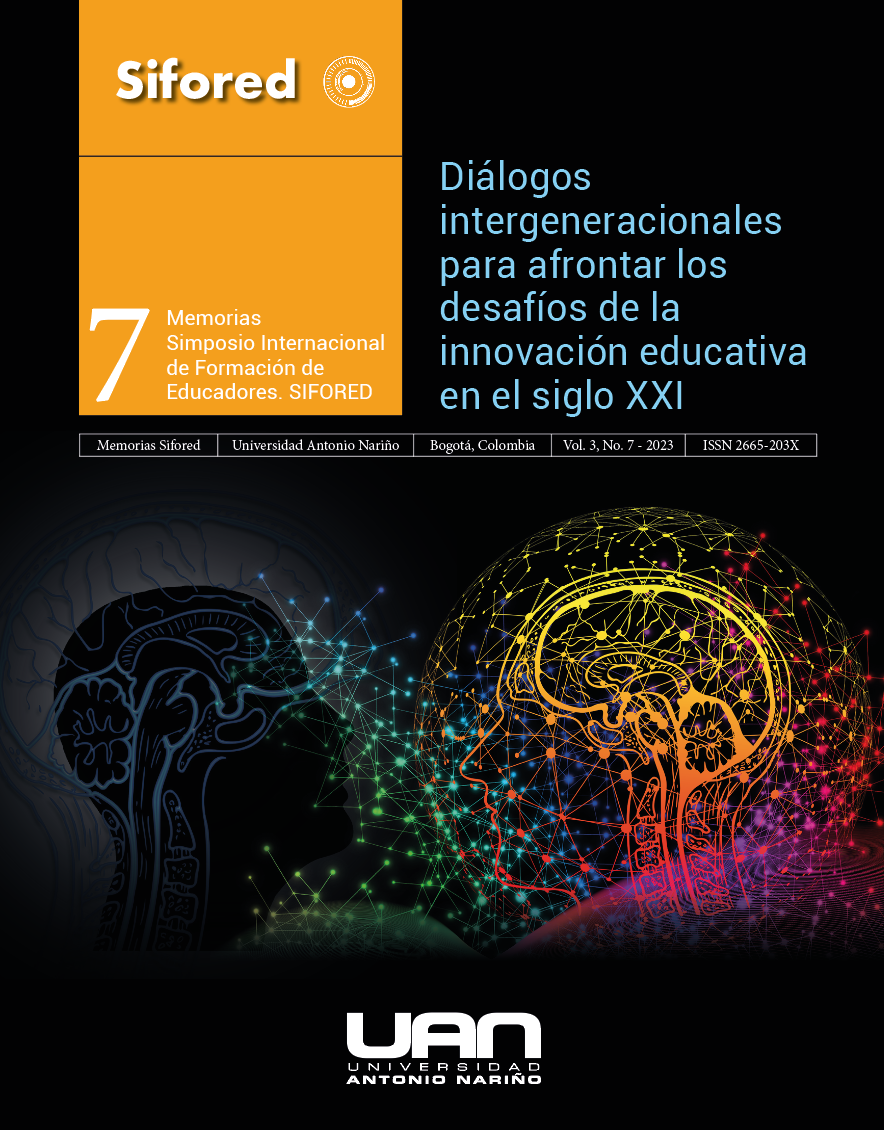Análisis del ambiente escolar en la institución educativa Santa Ana innovación educativa y construcción de paz
Keywords:
peace building, class environment, class bullyingAbstract
This paper presents the analysis of results of the first phase of my master's research, in which the school environment in the Santa Ana educational institution was evaluated. To this end, a Likert-type survey was conducted among tenth and eleventh grade students, who have been training in the same place for several years, know the teaching population and have spent a lot of time interacting within this institution. A study conducted by Precisa Medición Estratégica de México in 2018, which sought to assess perception in a wide variety of institutions, was found and adapted. The research questions were adapted to the school context to facilitate understanding and obtain punctual results through qualitative questions classified as relationship between students, norms of coexistence, problem solving and actions. The results showed a high rate of verbal aggression (61%), rumors (60%), threats (53%), teasing (57%), blackmail (47%) and theft or damage to personal objects (46%). In conclusion, it was determined that there are behaviors among students that affect the relational quality and the school environment, as well as the performance of the training, learning and teaching process. These problems can be externalized through physical aggression or cyberbullying.
Downloads
References
De Oliveira, M. G. (2018). School environment and practice of accumulated physical activity in young brazilian students. [Ambiente escolar e prática de atividade física acumulada em jovens brasileiros escolarizados. Obtenido de https://www-scopus-com.ezproxy.uan.edu.co/record/display.uri?eid=2-s2.0-85052303532&origin=resultslist&sort=plf-f&src=s&sid=0a707cb4ceb2722bd02c1144b1f6d3b0&sot=b&sdt=cl&cluster=scopubyr%2C%222018%22%2Ct%2C%222019%22%2Ct%2C%222020%22%2Ct%2C%222021%22%2Ct%
Debarbieux, E. (2015). Du « climat scolaire » : définitions, effets et politiques publiques. Obtenido de https://www.education.gouv.fr/climat-scolaire-et-bien-etre-l-ecole-9335
García, O., & Jiménez, A. (2018). Clima escolar. Un acercamiento al conocimiento generado sobre el tema.Debates en Evaluación y Currículum. Obtenido de https://educrea.cl/wp-content/uploads/2021/01/clima-escolar.pdf
Martínez, J. (2014). EL MANUAL DE CONVIVENCIA Y LA PREVENCIÓN DEL BULLYING. Diagnóstico, estrategias y recomendaciones.Editorial Magisterio.primera edición.cap.1 la gestión de la convivencia en el ámbito escolar. Obtenido de https://bibliotecadigital-magisterio-co.ezproxy.uan.edu.co/libro/el-manual-de-convivencia-y-la-prevenci-n-del-bullying-diagn-stico-estrategias-y#
Matas, A. (2018). Diseño del formato de escalas tipo Likert: un estado de la cuestión. Revista electrónica de investigación educativa, 20(1), 38-47. . Obtenido de http://www.scielo.org.mx/scielo.php?script=sci_arttext&pid=S1
Maya, B. A. (2014). Prevención del acoso escolar : Bullying y ciberbullying.Texto autoformativo y multimedia . Instituto Interamericano de Derechos Humanos.pp.418. Obtenido de https://www.iidh.ed.cr/iidh/media/1573/bulling-2014.pdf
Nussbaum, M. (2010). Sin fines de lucro. Por qué la democracia necesita de las humanidades. Katz Editores. Capítulos (2-5). Obtenido de https://repensarlafilosofiaenelipn.files.wordpress.com/2015/11/martha-nussbaum-sin-finesde-lucro.pdf
Pérez, T. (2014). El ambiente escolar y el poder transformador del educador. pp.25-66. Obtenido de https://bibliotecadigital-magisterio-co.ezproxy.uan.edu.co/node/93878
Precisa, M. E. (2018). Evaluación externa de resultados del programa nacional de convivencia escolar. Obtenido de https://tabasco.gob.mx/sites/default/files/users/setabasco/InformeFinalEvaluaciondelPNCEDiciembre2018.pdf
Villena, M. M. (2016). Incidencia de las actitudes y personalidad del maestro en la conducta social de los alumnos. Obtenido de https://digibug.ugr.es/handle/10481/43412
Downloads
Published
-
Abstract360
-
PDF (Español)77
How to Cite
Issue
Section
License

This work is licensed under a Creative Commons Attribution-NonCommercial-ShareAlike 4.0 International License.


 Portal de Ciencia Abierta
Portal de Ciencia Abierta